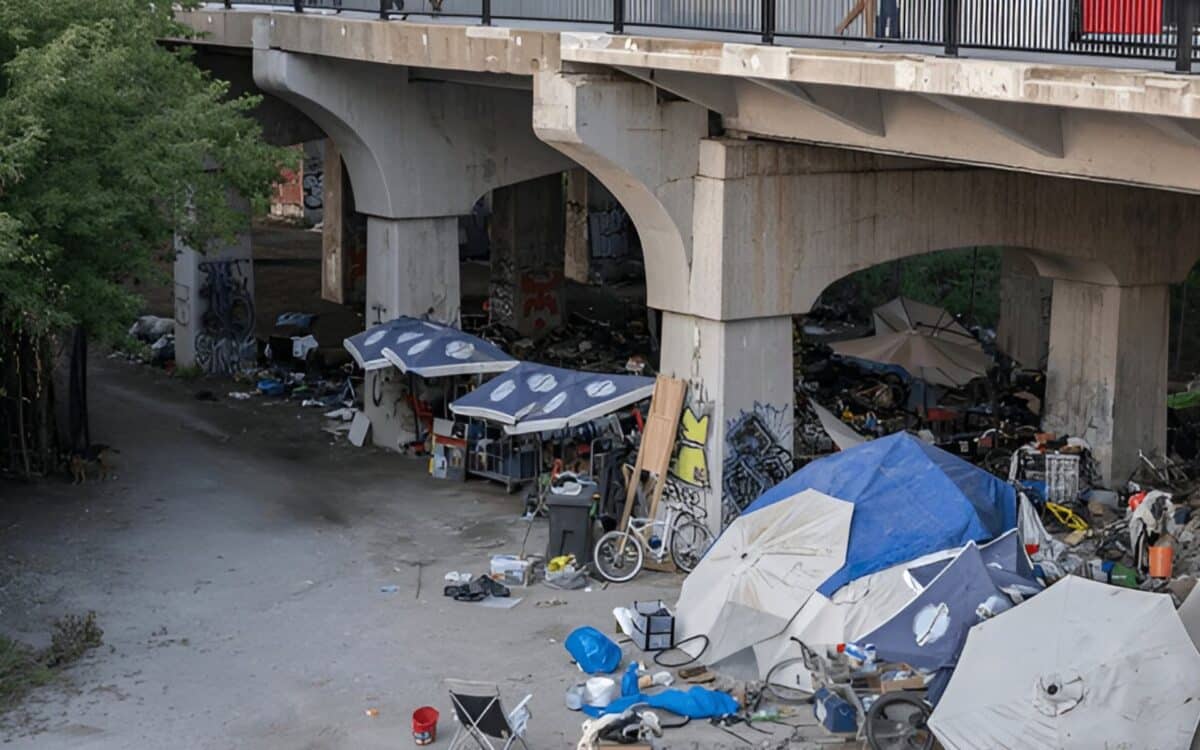The U.S. grapples with a homelessness crisis affecting over 770,000 people—a 40% increase since 2017—many are asking whether the country’s approach to housing policy needs a radical shift. The problem isn’t merely about shelters or subsidies; it’s rooted in systemic economic inequalities, environmental disasters, and, perhaps most critically, a lack of political will.
A Perfect Storm of Housing Instability
Wildfires like California’s recent Sunswept fire exemplify how environmental factors compound existing vulnerabilities. Rosie Garrison, a Los Angeles resident displaced by the blaze, has lived unhoused since 2017. “If we rebuild, how are we not going to be outside still?” she asked, a question that encapsulates the frustrations of thousands.
But wildfires are only part of the story.
- Skyrocketing Rents: More than 50% of Americans now spend over half their income on rent, creating an inevitable pipeline to homelessness.
- Federal Policy Gaps: Programs like Housing First, which have been lauded for their success, face political backlash and potential defunding under the Trump administration.
- Influx of Migrants: Sanctuary cities, overwhelmed by migrant shelter populations, struggle to balance immediate needs with long-term housing solutions.
Rethinking the Federal Role in Housing
Housing policy in the U.S. is at a crossroads. President Donald Trump’s focus on deregulation and housing homeless people on federal lands may appeal to some as innovative but raises critical questions:
- Who Benefits? Removing regulations without addressing affordability risks leaving low-income families behind.
- Federal Land as Housing? While creative, this approach may isolate people from existing community networks and support systems.
- The Role of Housing First: Experts warn that rolling back this model could lead to higher costs for taxpayers, as unhoused individuals cycle through shelters, emergency rooms, and jails.
Key Data Points on Homelessness
| Year | Homeless Population | % Change Since 2017 |
|---|---|---|
| 2017 | 550,000 | Baseline |
| 2024 | 770,000 | +40% |
Local Solutions and Their Limits
While federal leadership wavers, local governments are stepping in:
- Medicaid for Housing: Grants Pass, Oregon, uses Medicaid to subsidize rent for unhoused residents.
- Eviction Prevention: Los Angeles pilots innovative strategies to curb evictions, but scaling these programs remains a challenge.
- Creative Food Aid: Community organizations like Brooklyn’s Community Help in Park Slope combine food support with advocacy for affordable housing.
Yet, even the best local efforts can falter without federal funding. As Josh Balloch of AllCare Health notes, “If you start to cut those programs, you make it exponentially harder for communities to administer services.”
Recognizing the Systemic Roots of Homelessness
The U.S. must confront uncomfortable truths about homelessness: it is a reflection of systemic failures, not personal shortcomings, and housing must be treated as a right, not a privilege.
Policies that criminalize poverty, such as anti-tent bans and sleep ordinances, only worsen the problem rather than addressing its root causes. At the core of the crisis lie high rents, stagnant wages, and a severe lack of affordable housing, which collectively push vulnerable populations further into instability.
A Pathway to Progress in Addressing Homelessness
While the challenges are daunting, there are clear steps forwards:
- Expand Proven Models: Apply the success of veteran homelessness programs, where federal agencies collaborate effectively.
- Embrace Bipartisan Solutions: Housing should transcend political divides, with a focus on practical, data-driven policies.
- Build Low-Income Housing: Cities and states must prioritize below-market rate construction, even if it requires federal incentives.
The stakes are clear: Without immediate and decisive action, the homelessness crisis will continue to grow, straining not only public systems but the moral fabric of the nation itself. Instead of asking how we manage homelessness, it’s time to demand why it persists in the wealthiest nation in the world.









